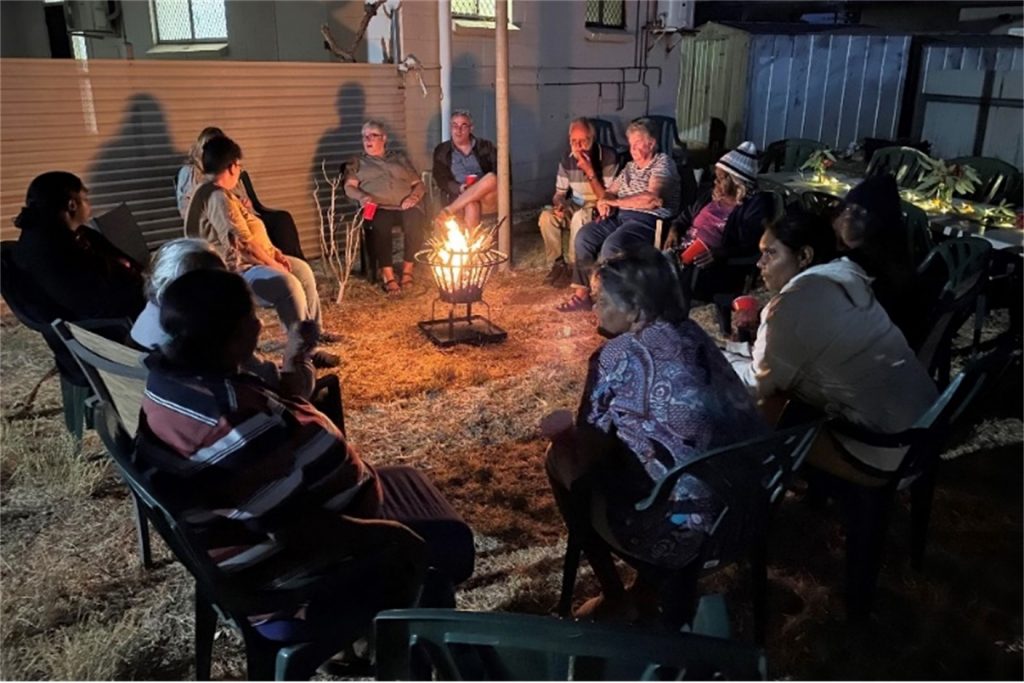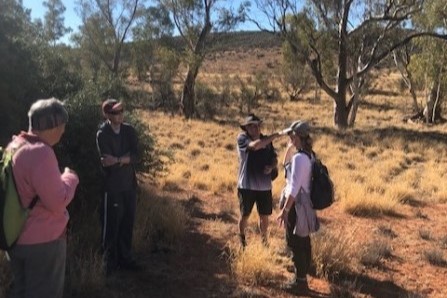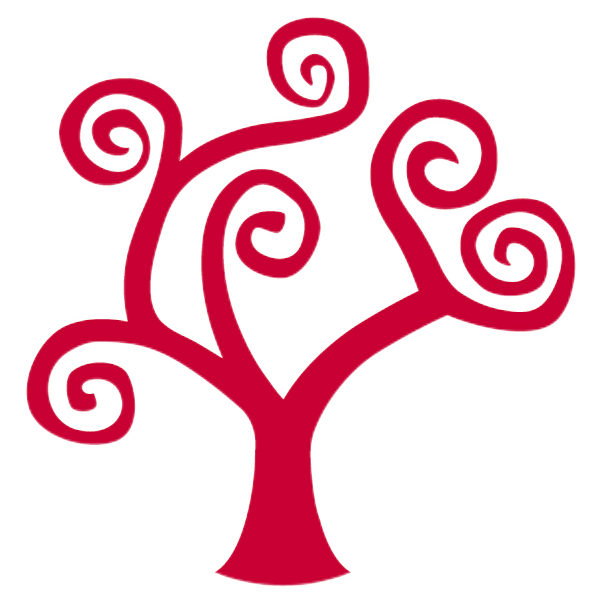
Originally written and published by the Foundation for Rural & Regional Renewal (FRRR) on 10 November 2022.
The TFFF thanks Ltyentye Apurte Catholic School for providing permission to reproduce this story.
Eastern Arrernte Country
Ltyentye Apurte Catholic School (LACS) is one of the most successful remote Aboriginal schools in central Australia and the NT. It is the only school serving the 600-strong community of Ltyentye Apurte (pronounced ‘L-Ginga Porter’, meaning ‘clump of beefwood trees’ in the Arrernte language) or Santa Teresa. A number of the facilities at LACS are communal, notably the library and computers. The community is 83 km south east of Alice Springs in semi-desert country. Temperatures are extreme, ranging from -1 to 45 degrees but there is year-round access via an unsealed road.
The local Arrernte people are bilingual and speak Eastern Arrernte and English (which is often their second or third language). The Arrernte language and cultural program is a key part of the curriculum at LACS.
In Santa Teresa, extreme socio-economic disadvantage is the norm, with residents and the school facing many challenges, notably extremely poor housing and health, high unemployment with minimal employment opportunities, adults suffering from poor mental health and a high number of students suffering from intergenerational trauma. Remote schools in general have a major issue with teacher retention due to the complex challenges of students and their families. The average stay of a teacher in NT schools is 7 months; 9 months in catholic schools. Existing senior staff frequently work 80 hour weeks, regularly wearing multiple hats in part due to a lack of teachers.
According to the Principal at the time, the future of Santa Teresa depends to a great extent on the school providing the optimal best education for Santa Teresa youth: “To make the remote community of Santa Teresa strong, we must make its school strong.”
In 2022, there were 126 students enrolled, from Pre-School to Year 11. All students are Indigenous and bilingual. Most of the teachers at LACS are non-Indigenous and come with a range of experience from mainstream education. The school is also a major employer of the local Arrernte people, with approximately 60% of Indigenous staff filling a multitude of critical support roles. Teachers work as members of a team in partnership with local Indigenous people and Arrernte assistant teachers and tutors.
Isolation and the challenges of living and working in a community context mean that staff need all the support they can get in terms of building resilience. Ongoing change is the norm, with 2020 and 2021 seeing even higher levels of change and uncertainty. There is often a significant turnover of new staff, which presents additional challenges to building trust and a resilient community.
The impacts of these factors are substantial, including very high levels of stress, distraction from the mission of educating students, lower engagement, uncertainty about the future, change fatigue, staff burnout, talent loss and lower trust in leaders.
To try to address this, the Principal at the time knew they needed to help teachers and staff build resilience, sustainable high performance and change agility. They used a $10,000 grant from FRRR, through the Strengthening Rural Communities program, funded by the Tim Fairfax Family Foundation, to run the Resilient Educators Program (REP).
The REP began with all teachers completing a Resilience Diagnostic, prior to a two-day workshop. The Diagnostic measured individual resilience in areas such as emotional regulation, self-confidence, compassion, exercise, sleep and nutrition. Staff then participated in a two-day workshop, facilitated by Paul Salmon, called “Thriving Through Change and Challenge”. Each staff member created three goals to help improve their resilience and the option of having an accountability buddy or sessions with a resilience coach to support them in reaching their goals.
After the workshop, the teachers were given access to an app, which provided a detailed resilience report and materials to develop new skills. They also committed to participating in a range of activities in smaller groups and with the whole staff community, such as an evening walking group, weekend trips away and a regular BBQ breakfast. This was followed up with a visit from the Resilience coach, which led to three shared goals being created.
Despite challenges in rolling this out due to the pandemic and its subsequent impacts, staff collaborated to implement wellbeing activities based on their learnings from the workshops and the ongoing use of the Resilience App. They continue to come together as a community to support one another in challenging times.
The outcome has been an improvement on the health and wellbeing of the whole community.
“All staff became more aware of the importance of resilience and the necessity to plan for how to manage stress and cope with the added burden of the pandemic. There is also a greater understanding by leadership of the necessity to prioritise staff wellbeing through strategic planning using an integrated holistic approach,” said Pamela Brown, Acting Principal.
“It has become part of our school culture for staff to check in with each other on how they are travelling, especially concerning sleep, exercise and levels of stress. It is now becoming part of our meetings to start with a partner check in or short meditation activity. We introduced a new wellbeing curriculum program, MindUp for Life, which not only teaches the knowledge and skills children need to regulate their stress and emotion but also supports teachers in building positive relationships with students and the broader community."
“There is a more holistic focus on wellbeing and resilience with an area created in the staffroom where staff relax and do mindful colouring. Plus, there are opportunities for staff to publicly acknowledge and show gratitude for effort, and pampering products for staff in our rest rooms.”


Staff participating in the Resilient Educators Program.
Cover photo: Ltyentye Apurte Catholic School.
All photos courtesy of FRRR and Ltyentye Apurte Catholic School.
Originally written and published by FRRR on 10 November 2022.
The TFFF thanks Ltyentye Apurte Catholic School for providing permission to reproduce this story.
Ltyentye Apurte Catholic School is supported through the Connectedness stream in partnership with FRRR.

